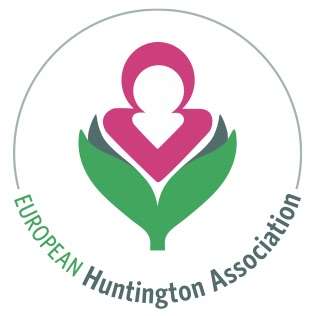The circumstances for people affected by Huntington’s in Malta are poor. However, the situation might change. This October EHAs Vice President Barbara D’Alessio and LIRHs Founding Director Ferdinando Squitieri are travelling to the small country to meet HD affected families.
With a population of just 420 000 Malta is one of the smallest and most densely populated countries in the world. The country is strategically placed in the middle of the Mediterranean Sea, between Africa and Europe.
Human life on Malta can be traced back to 5200 BC, when settlers from Sicily came and inhabited the islands. Since then, seafarers from different cultures, religions and countries have set their foot on the land.
Huntington’s disease in Malta
The first known case of Huntington’s disease in Malta dates back to 1872. In January that year, a man in his 70s was admitted at a hospice in Floriana. His diagnosis was Huntington’s disease – or as it sometimes was termed during the 19th century: St. Vitus’ Dance.
Whether it was brought to the island with a seafarer or whether it appeared due to a mutation is unknown.
The situation today
For the last 150 years Huntington’s disease has had a documented presence in Malta. In 1994 a Genetic Counseling Center offered psychological and genetic counselling to those at risk for developing the disease.
So how is the situation today?
It seems like the situation for HD affected in Malta is one of the most critical in Europe.
The Genetic Counseling Center that once existed is no longer operative; it seems like it just vanished at one point. Malta does not have any specialists or researchers on HD, and there is no sign of a HD association.
People affected by the disease are hiding. This in turn leads to a huge knowledge gap: few people know about the disease, the research that is being done or the treatments that exists. Genetic testing is offered in Malta but only a few people have knowledge about this possibility.
Wonder woman
It seems like the Maltese only have one woman: Margaret. She agreed to let EHA use her name, but would like to stay anonymous.
Margaret keeps track of all the HD affected families in Malta. According to her there are around 60 HD families in Malta. As far as HD goes, that is a high prevalence in a country of only 420 000 inhabitants.
For the last 20 years, Margaret has been organizing the only HD initiative that exists in the country: support groups for affected families. She does so in collaboration with the Catholic initiative Caritas Malta. They assist with rooms, Margaret with leadership.
As of now, the support groups are taking place in separate, private rooms. The families do not want to meet or see each other during the sessions.
New opportunities
But there might be an end to this situation. This Spring Professor Ferdinando Squitieri and the Vice President of EHA Barbara D’Alessio started to work on the HD situation in Malta. With the help of LIRH they currently try to improve the situation.
Lega Italiana Ricerca Huntington (LIRH) is a organization supporting and conducting scientific research, providing patients with free of charge assistance, promoting awareness raising initiatives, training professionals and spreading research results. The organization supports 600 HD families in Italy and they hope to recreate this support model in Malta.
In the future they hope to establish an outpatient clinic specialized in HD. “Maltese doctors should provide the support and offer this kind of facility,” D’Alessio states. “EHA and LIRH can hopefully organize educational seminars to learn Maltese health workers about the disease”.
A persistent Maltese HD network therefore solely relies on local health workers and local initiatives: LIRH and EHA can ring the bell but the Maltese have to finish the race.
Meeting with HD families in October
This October Prof. Squitieri and D’Alessio will take part of the support groups organized by Margaret. During the meetings they will meet many people affected by the disease, talk with them and answer their questions. The former Minister of Health will also be present at the meetings.
Prof. Squitieri emphasize that the first step is to get in contact with the families, then the doctors and other professional health care workers.
“We need to talk to people because they are scared. They are not used to be open about the disease,” D’Alessio states before she continues: “We want them to feel part of a bigger community. Because they are.”
Written by Maiken Arnesen
